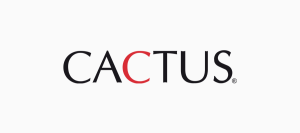I did not imagine that COVID-19 would spread so quickly when I first saw reports of the outbreak in January 2020. The world is trying to overcome this problem, but it has affected how we work. Many countries have imposed a lockdown, forcing people to work from home.
Japan started hearing of confirmed cases from mid-Feb. Our China offices had to be closed for more than a month and I was getting detailed information from colleagues in Shanghai and Beijing about how they were dealing with the situation.
The Tokyo office, which I oversee, has many working mothers and we had started experimenting with work-from-home a few years ago. So, when it was time for the entire office to work from home, we did not face any issues. I believe CACTUS is one of the few companies in Japan that was able to transition quickly and smoothly, and it’s been a little over a month since we have been working from home.
As expected, our employees settled in quickly. They seem to be happy that they save a lot of time they would have otherwise spent commuting.
Since most of us have worked from home for varying durations, how to focus on work was not a big challenge. Arrangements for additional monitors (since we use laptops), IP phones, and tools/software were made in advance. It seemed we were well prepared for the situation we were put in by the COVID-19 outbreak.
When Japan was hit by the earthquake in 2011, its electricity supply was affected and Japan was forced to think of innovative ways to save electricity. Concepts like “cool biz”—no jacket, no tie—were introduced to the working population in summer. Until then, employees in Japan always wore complete formal attire in the office; now, casual wear has become acceptable. Similarly, I feel like the work-from-home model will gradually become the norm.
I must acknowledge the HR team. When news of the rapidly increasing cases started trickling in, HR asked all global offices to scale up work-from-home irrespective of the number of cases in the country. This foresight, backed by regular updates, helped us avoid panic and put the safety of our employees at the stop of the priority list. This is in sharp contrast to many companies in Japan that asked their employees to commute to the office in packed trains. I must also thank the employees in the Tokyo office for understanding the gravity of the situation and exercising precautions. It is thanks to their cooperation that we are still able to serve our customers.
I’m sure we’ll come out of this better, wiser, and stronger.








